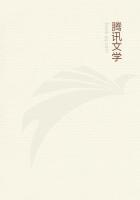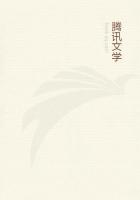In the absence of the highest aims, of the pure love of knowledge, and the surrender to nature, there is the suppression of the imagination, the priapism of the senses and the understanding; we have the factitious instead of the natural; tasteless expense, arts of comfort, and the rewarding as an illustrious inventor whosoever will contrive one impediment more to interpose between the man and his objects.
Thus poetry is degraded, and made ornamental. Pope and his school wrote poetry fit to put round frosted cake. What did Walter Scott write without stint? a rhymed traveller's guide to Scotland.
And the libraries of verses they print have this Birmingham character. How many volumes of well-bred metre we must gingle through, before we can be filled, taught, renewed! We want the miraculous; the beauty which we can manufacture at no mill, -- can give no account of; the beauty of which Chaucer and Chapman had the secret. The poetry of course is low and prosaic; only now and then, as in Wordsworth, conscientious; or in Byron, passional; or in Tennyson, factitious. But if I should count the poets who have contributed to the bible of existing England sentences of guidance and consolation which are still glowing and effective, -- how few!7Shall I find my heavenly bread in the reigning poets? Where is great design in modern English poetry? The English have lost sight of the fact that poetry exists to speak the spiritual law, and that no wealth of description or of fancy is yet essentially new, and out of the limits of prose, until this condition is reached. Therefore the grave old poets, like the Greek artists, heeded their designs, and less considered the finish. It was their office to lead to the divine sources, out of which all this, and much more, readily springs; and, if this religion is in the poetry, it raises us to some purpose, and we can well afford some staidness, or hardness, or want of popular tune in the verses.
The exceptional fact of the period is the genius of Wordsworth.
He had no master but nature and solitude. "He wrote a poem," says Landor, "without the aid of war." His verse is the voice of sanity in a worldly and ambitious age. One regrets that his temperament was not more liquid and musical. He has written longer than he was inspired. But for the rest, he has no competitor.
Tennyson is endowed precisely in points where Wordsworth wanted. There is no finer ear, nor more command of the keys of language. Color, like the dawn, flows over the horizon from his pencil, in waves so rich that we do not miss the central form.
Through all his refinements, too, he has reached the public, -- a certificate of good sense and general power, since he who aspires to be the English poet must be as large as London, not in the same kind as London, but in his own kind. But he wants a subject, and climbs no mount of vision to bring its secrets to the people. He contents himself with describing the Englishman as he is, and proposes no better. There are all degrees in poetry, and we must be thankful for every beautiful talent. But it is only a first success, when the ear is gained. The best office of the best poets has been to show how low and uninspired was their general style, and that only once or twice they have struck the high chord.
That expansiveness which is the essence of the poetic element, they have not. It was no Oxonian, but Hafiz, who said, "Let us be crowned with roses, let us drink wine, and break up the tiresome old roof of heaven into new forms." A stanza of the song of nature the Oxonian has no ear for, and he does not value the salient and curative influence of intellectual action, studious of truth, without a by-end.
By the law of contraries, I look for an irresistible taste for Orientalism in Britain. For a self-conceited modish life, made up of trifles, clinging to a corporeal civilization, hating ideas, there is no remedy like the Oriental largeness. That astonishes and disconcerts English decorum. For once there is thunder it never heard, light it never saw, and power which trifles with time and space. I am not surprised, then, to find an Englishman like Warren Hastings, who had been struck with the grand style of thinking in the Indian writings, deprecating the prejudices of his countrymen, while offering them a translation of the Bhagvat. "Might I, an unlettered man, venture to prescribe bounds to the latitude of criticism, Ishould exclude, in estimating the merit of such a production, all rules drawn from the ancient or modern literature of Europe, all references to such sentiments or manners as are become the standards of propriety for opinion and action in our own modes, and, equally, all appeals to our revealed tenets of religion and moral duty." (*1) He goes on to bespeak indulgence to "ornaments of fancy unsuited to our taste, and passages elevated to a tract of sublimity into which our habits of judgment will find it difficult to pursue them."(* 1) Preface to Wilkins's Translation of the Bhagvat Geeta.
Meantime, I know that a retrieving power lies in the English race, which seems to make any recoil possible; in other words, there is at all times a minority of profound minds existing in the nation, capable of appreciating every soaring of intellect and every hint of tendency. While the constructive talent seems dwarfed and superficial, the criticism is often in the noblest tone, and suggests the presence of the invisible gods. I can well believe what I have often heard, that there are two nations in England; but it is not the Poor and the Rich; nor is it the Normans and Saxons; nor the Celt and the Goth. These are each always becoming the other; for Robert Owen does not exaggerate the power of circumstance. But the two complexions, or two styles of mind, -- the perceptive class, and the practical finality class, -- are ever in counterpoise, interacting mutually; one, in hopeless minorities; the other, in huge masses; one studious, contemplative, experimenting; the other, the ungrateful pupil, scornful of the source, whilst availing itself of the knowledge for gain; these two nations, of genius and of animal force, though the first consist of only a dozen souls, and the second of twenty millions, forever by their discord and their accord yield the power of the English State.















